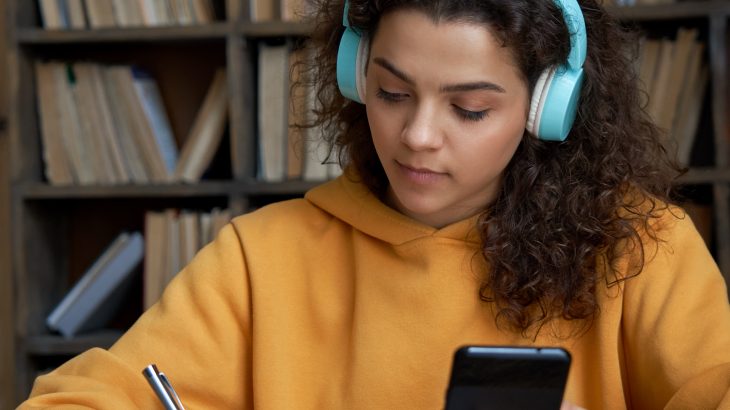Headphones are Not Evil
I marvel that some teachers despise headphones. They see no problem with asking a student to concentrate on difficult mental work like reading or writing, in a group of 20+ other people tightly packed. Many people who work in computer science, remote customer service, accounting, or many other fields routinely use headphones when they need to concentrate. It’s reasonable to give students the same tools.
Headphones Reduce Distraction
Our world is crowded. Noise and overstimulation constantly distract. Nowhere is this more blatant than in school classrooms. Headphones help make it bearable. It should NOT require an IEP or 504 for a student to make use of such a basic tool.
Music Improves Focus for Some Students
A common response when I bring up headphone use goes like this, “Allowing students to use headphones just lets them listen to music.” Working for 30 years with neurodiverse students taught me that some students flourish academically when allowed music of their choice during study. Some students prefer silence, some prefer white noise, and others prefer music. Our brains differ in this regard, so permitting students to choose their aural environment makes sense. Music allows some people to focus. For others, it calms and centers. Music may raise mood and sense of well-being. Most importantly, what I find helpful usually differs from what the student finds helpful. That’s OK if the student is allowed headphones. I recommend high quality comfortable noise-canceling headphones if you can afford them, but even earbuds can provide welcome benefits.
Encourage Dyslexic Students to Track
The most powerful reading improvement tool for dyslexic students is tracking. Tracking simply means looking at the words in the text while hearing them spoken aloud. Independent tracking lets dyslexic learners experience high-level text in a way that works beautifully with dyslexic strengths. Tracking dramatically improves reading vocabulary and comprehension. I think it’s cruel to deprive dyslexic students of the chance to track instead of painfully sounding out word after word. Research reveals that reading levels improve with tracking, but plateau at low levels otherwise. So why would anyone want to argue against headphones for dyslexic students?
Headphones Improve Learning for a Lot of Students
In any classroom, at least twenty percent of the students exhibit traits linked to dyslexia, autism, ADD, or ADHD. If a simple tool like headphones makes study happier and more productive for these students, shouldn’t headphones be available to all students without the stigma of being a special accommodation?
by Yvonna Graham, M.Ed.
www.dyslexiakit.net
@GrahamYvonna
You can try Audible books for 1 month free here (affiliate link)
